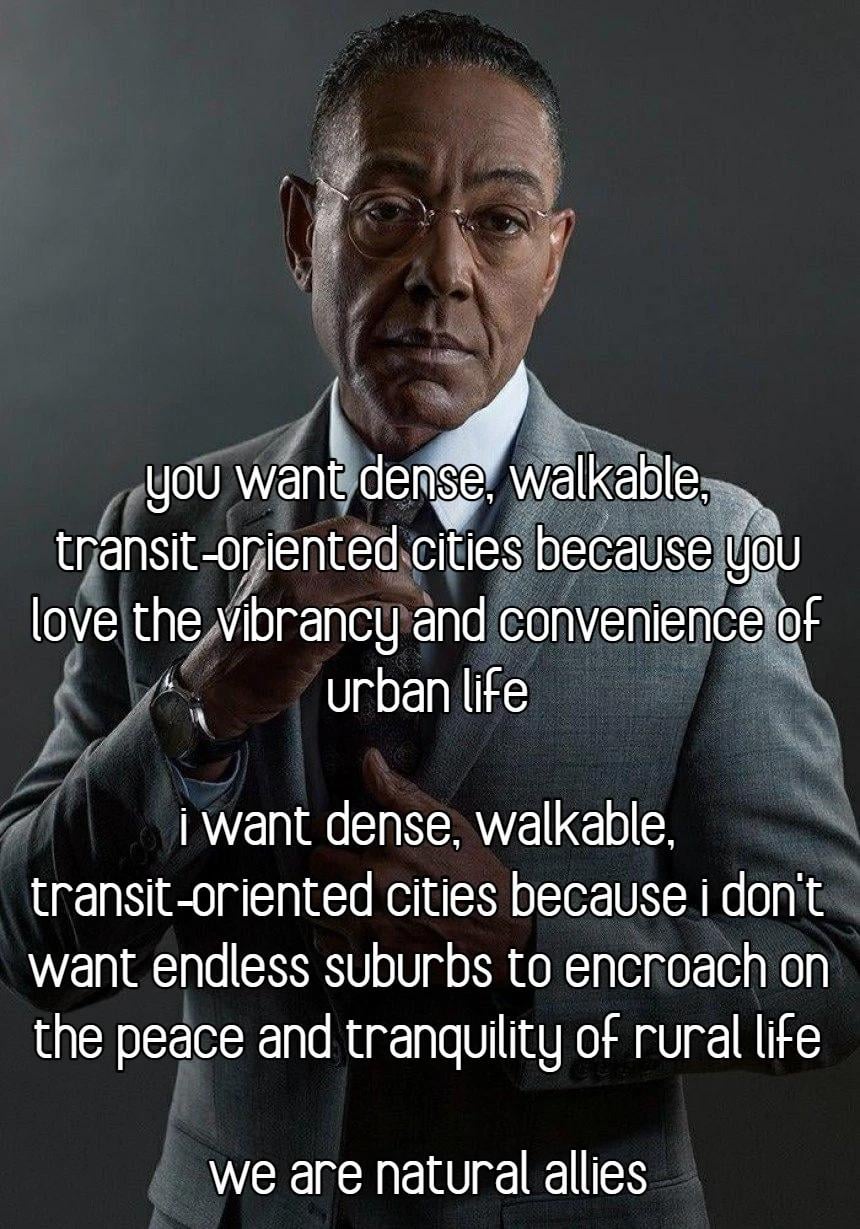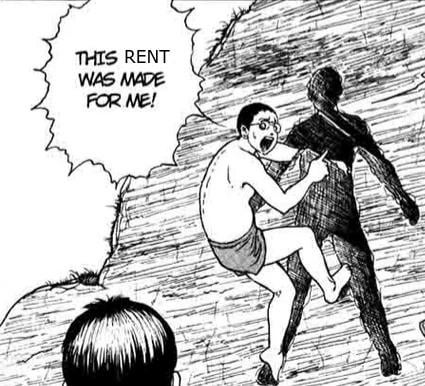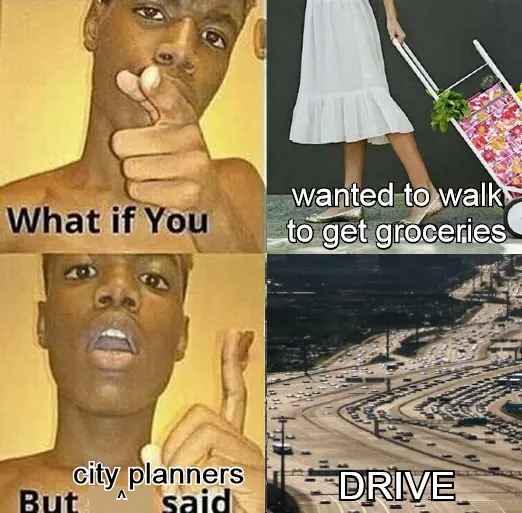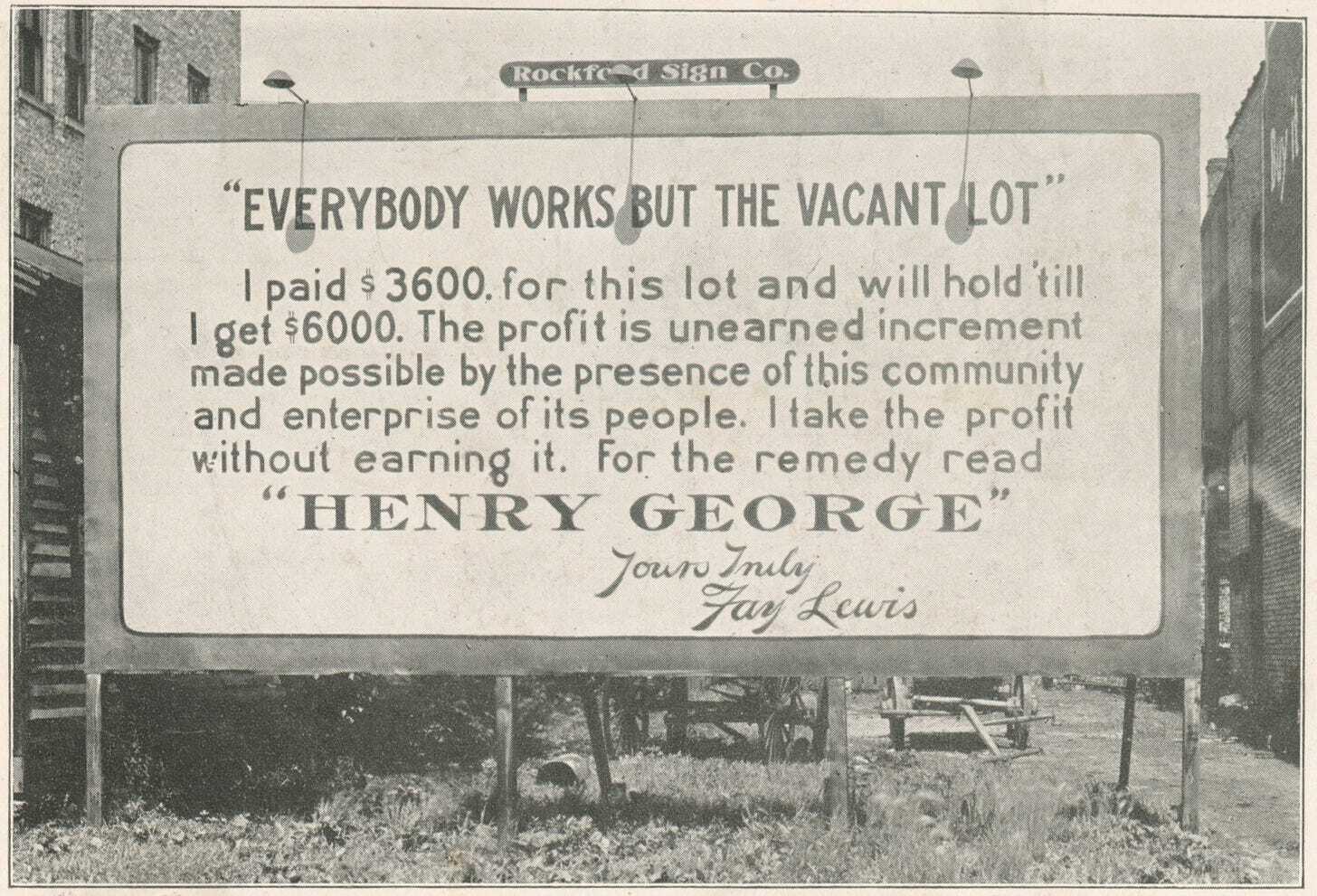Yeah, my worry is they just turn genuine intrinsic motivation into mundane extrinsic motivation. Kids should want to do things out of pure curiosity and interest, not solely because they'll receive prizes for it. It's why I like legos so much as a kid; they're a toy without any external prize or motivator that you play with purely for the desire to create.
That's the funny thing about Adam Smith is he was suuuuuper anti-landlord and suuuuuper anti-crony capitalist, and yet rich folks have co-opted his ideas and warped them into somehow being pro-landlord and pro-crony capitalist. Some quotes:
The rent of the land, therefore, considered as the price paid for the use of the land, is naturally a monopoly price. It is not at all proportioned to what the landlord may have laid out upon the improvement of the land, or to what he can afford to take; but to what the farmer can afford to give.
-- Ch 11, Wealth of Nations
As soon as the land of any country has all become private property, the landlords, like all other men, love to reap where they never sowed, and demand a rent even for its natural produce.
-- Adam Smith
[the landlord leaves the worker] with the smallest share with which the tenant can content himself without being a loser, and the landlord seldom means to leave him any more.
-- Ch 11, Wealth of Nations
The landlord demands a rent even for unimproved land, and the supposed interest or profit upon the expense of improvement is generally an addition to this original rent. Those improvements, besides, are not always made by the stock of the landlord, but sometimes by that of the tenant. When the lease comes to be renewed, however, the landlord commonly demands the same augmentation of rent as if they had been all made by his own.
-- Ch 11, Wealth of Nations
RENT, considered as the price paid for the use of land, is naturally the highest which the tenant can afford to pay in the actual circumstances. In adjusting the lease, the landlord endeavours to leave him no greater share of the produce than what is sufficient to keep up the stock.
-- Ch 11, Wealth of Nations
[Landlords] are the only one of the three orders whose revenue costs them neither labour nor care, but comes to them, as it were, of its own accord, and independent of any plan or project of their own. That indolence, which is the natural effect of the ease and security of their situation, renders them too often, not only ignorant, but incapable of that application of mind.
-- Ch 11, Wealth of Nations
Yeah, I certainly don't regret moving to Montreal, as it's where I met my wife and now where I'm working full-time. But yeah, I got the sense that attending Rose-Hulman would have meant being in a college bubble for 4 years and never doing much outside of that bubble.
One big upside is road wear and tear. Damage to roads from vehicle weight is proportional to the axle weight raised to the fourth power, meaning heavy vehicles like trucks do the vaaaaast majority of road wear. Steel tracks can carry much heavier loads.
Another is train boxcars can be unloaded from the side, in parallel, unlike trucks that need to be unloaded from a small opening in the back.
Another is it's easier to electrify, and you don't need rubber tires, so you avoid a lot of emissions (CO2 from fossil fuels and particulate matter from tires).
Finally, you need an asphalt road to support trucks. With cargo trams, you can have non-impervious surfaces like grass that no other cars can drive on, meaning you don't accidentally induce demand for passenger cars when building infrastructure for commercial trucks.
And yeah, a big downside of course is needing way more tramways, but I don't necessarily see that as a bad thing to have. Just makes the switchover longer and costlier.
That said, I think trams make most sense for bigger stores, e.g., grocery stores. For regular Amazon deliveries? Not so much. For those, neighborhood electric vehicles (basically glorified golf carts) are probably more suitable. Most delivery vans run well below cargo capacity most of the time anyways, meaning they don't really benefit that much from the capacity of a larger vehicle.
http://gameofrent.com/content/can-land-be-accurately-assessed
The key downsides of income taxes, though, are it requires tracking everyone's income, and it's very easy to hide income by doing under-the-table work and getting paid in cash. In contrast, it's impossible to hide land.
Wow, even Terre Haute. Almost went there for college (Rose-Hulman), but decided against it in part because the city itself was so small and sprawling. It must've been 1000x livelier back in the streetcar days when things were probably more densely built and less obscenely car-centric.
Also, Trump got elected, so I was like, "Nah, I'm moving to Canada", which is how I ended up in Montreal instead.
Similar with Montreal. A whole grid of streetcar lines just got torn up and replaced with buses. We now have a nice metro now at least, but it certainly wasn't made from pre-existing tramways.
I think part of the problem is that what we refer to as landlording includes two separate roles: landlording and property management. The former isn't a legitimate job, gathering its profits from economic rents borne of land and housing scarcity, while the latter is a legitimate job, earning its profits from the labor of managing and maintaining rental housing.
And so with a sufficiently high LVT, approaching the full rental value of land as Henry George proposed, and a much more YIMBY regulatory environment, I think we would likely see landlords converge towards being mere property managers.
That said, you are fully correct that the non-zero costs of moving would still give landlords a little leeway to rent-seek, and I'm curious what solutions may exist to remedy that.
Regardless of whether it 100% solves landlording, I do think LVT and YIMBYism do largely solve real estate "investment" as the meme talks about. Since LVT and abundant housing stop the "line goes up" phenomenon, and LVT in particular punishes real estate speculation, I think they would largely, if not entirely, eliminate the phenomenon of people buying up land/property just to resell later after appreciation. Because, well, housing wouldn't appreciate under a sufficiently heavy LVT and a strong YIMBY regulatory environment.
Land value tax would fix this
And abolishing exclusionary zoning, parking minimums, and other anti-housing land use policies
Me, too. I really wish cities had streets where no cars were allows, and where you had wide pedestrian paths, nice bike paths, and grassy tram tracks. Preferably with mature shade trees forming a canopy over the whole space.
Granted, the one above is ugly, but there are/were others:









In addition to what others have said, parking lots are also an easy and cheap way to keep vacant land for speculative purposes.
Basically, our current property tax system allows you to buy a vacant lot, sit on it for a number of years while paying pennies in taxes (because a vacant lot or a parking lot is very low value, even if the land is very high value), and then resell for a much higher price after the city has grown around it. Basically no work, but tons of free profit.
The remedy? Tax land instead. That way, your tax burden is based on the value of your land, not the value of your improvements, so that this form of land speculation becomes uneconomical, while also strongly incentivizing you to develop something more valuable, e.g., housing, offices, etc.